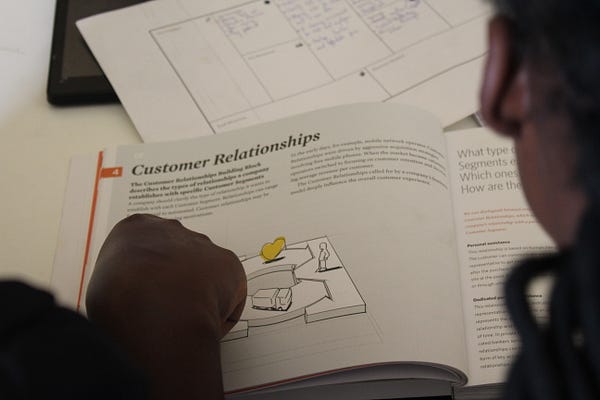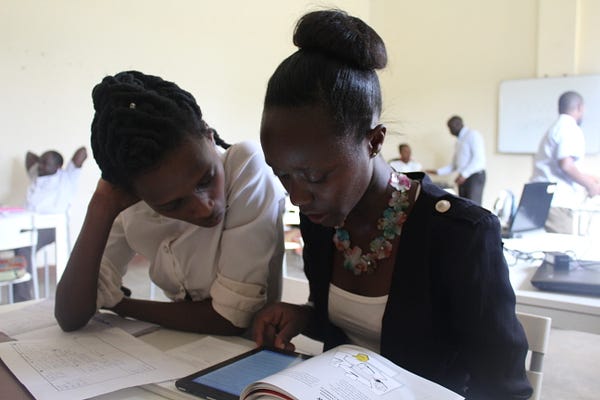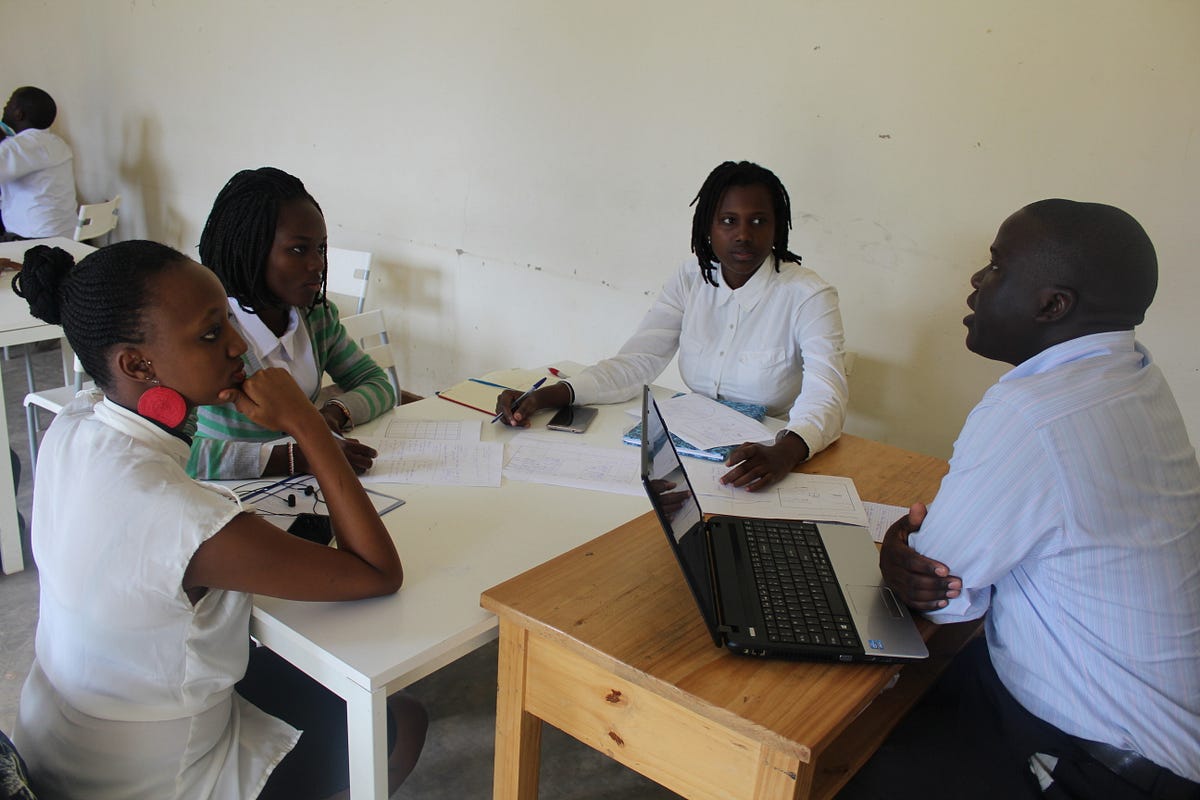Open for Business: Akilah’s Business Incubation Center
Akilah’s new Business Incubation Center helps students from all diploma tracks commercialize their innovations, perfect their pitches, and compete for capital in Akilah’s Entrepreneurship Fund competition.
“To determine your budget, you need to look at the variable costs, fixed costs, and the economics of scale. If you want to grow your business, what will it cost you?”
Akilah’s Business Instructor Titus Lugero is working through cost structures with three students in Akilah’s new Business Incubation Center. They have joined the Business Incubation Center on campus to take their event-planning business from concept to commercialization.
“We want our students to develop real businesses during their studies. That’s our main goal. To see students finalize the program with a real business that has a well-developed customer base and product, pays taxes, and can access other sources of funding,” explains Stanley Mukasa, Business Management and Entrepreneurship Program Manager.


Accelerating Student Businesses
The Incubation Center takes in 6–8 student businesses — or business ideas — twice a year for six-month cycles of business development support and mentorship. During those six months, the businesses pass through three phases: business model development, testing, and business creation. Students are also connected to mentors from the private sector and equipped to apply for potential external funding. The first cohort of businesses includes an event planning company, an online recruitment platform, a girls’ mentorship platform, a children’s hair salon, and a design company for kitchen uniforms.
“Most students face the same challenges. They have business ideas but no formal way of putting them into action. The Incubation Center offers a thorough support system. That means we can track their progress, connect them to mentors, and give all-around support in the areas they each need. There’s a lot of work to be done, and it’s both challenging and really exciting,” Mukasa says.

A Viable Business Model
Ella-Stella Ishimwe studies entrepreneurship and is one of the students who was selected to work in the Business Incubation Center. She is finalizing the value proposition and cost structure of her business, U-Connect, an online platform connecting universities and potential students.
“My idea is based on my personal challenges of connecting to a university when I was searching. I felt like something was missing between universities and the students they are trying to attract. Students find the research and applications phases difficult and stressful. My website is basically a recruitment portal, bridging the information gap between universities and potential students.”
By making the services free to students but charging the universities to be featured on the site, Ella-Stella hopes to build a viable business model that can scale to other countries. “In time, I want to be the main reference for universities in Rwanda — and maybe in East Africa within the next 5–10 years.”
Ella-Stella is currently mapping out her business model. Once it’s ready, she plans to bring an Information Systems student onto her team to work on the technical aspects of the site. In 6–8 months, she hopes to have a prototype ready and to launch officially within a year. Working from the Incubation Center twice a week has made the process of realizing her business ambition a serious reality.
“The Incubation Center pushes me to work hard to refine the idea. The value proposition alone took me three sessions before it was sustainable. That’s the foundation of it all, so I put a lot of work into it. Going forward, I’ll need a lot of mentorship to see this through and make it successful. But I believe I can do it.”
